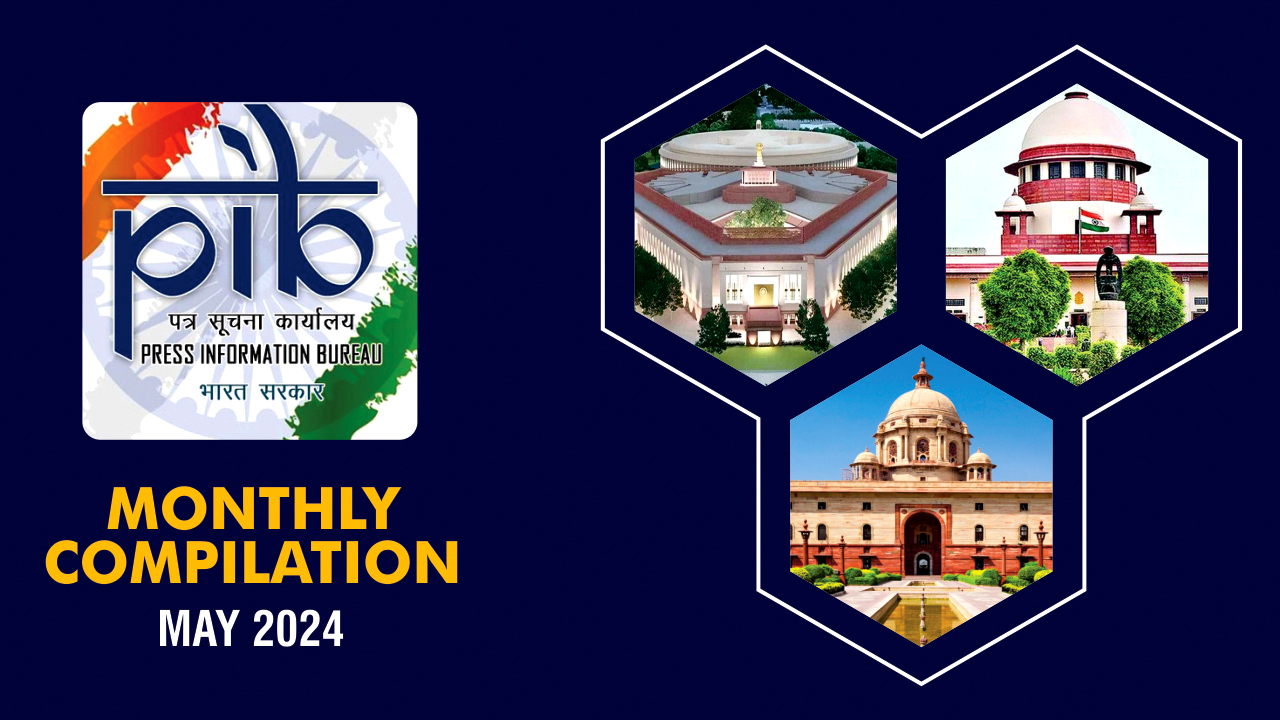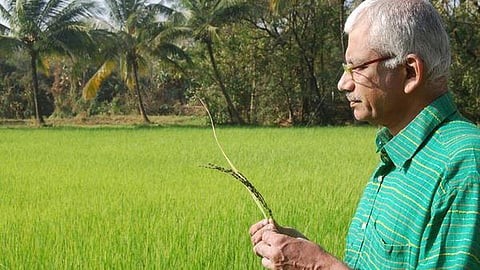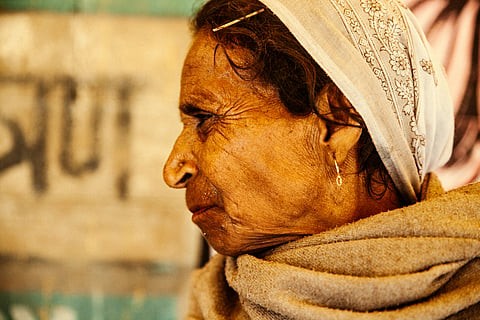Description

Source: TimesNow
Disclaimer: Copyright infringement not intended.
Context
- National Technology Day, observed annually on May 11, commemorates India's successful nuclear tests conducted on May 11, 1998, in Pokhran, Rajasthan.
Details
Background
- On May 11, 1998, India conducted its first successful nuclear tests, demonstrating its capabilities as a nuclear-powered nation.
- The tests included the launch of the Shakti-I nuclear missile at the Pokhran test range in Rajasthan, marking a significant milestone in India's defense capabilities.
- In addition to the nuclear tests, India also achieved milestones in aerospace technology, with the successful testing of the indigenous aircraft 'Hansa-3' in Bengaluru.
- The Defence Research and Development Organisation (DRDO) also test-fired the Trishul missile on the same day, showcasing advancements in missile technology.
- Since 1999, the Technology Development Board (TDB) has been recognizing technological innovations contributing to national growth.
Pokhran Tests
- The Pokhran tests refer to a series of nuclear weapons tests conducted by India in May 1998 at the Pokhran Test Range in the Thar Desert of Rajasthan.
- These tests marked India's first confirmed nuclear detonations since its "peaceful nuclear explosion" in 1974.
- The tests consisted of a total of five detonations over the course of two days and were codenamed "Operation Shakti”.
Background:
- Strategic Context: India faced regional security challenges, particularly from neighboring nuclear-armed states, including China and Pakistan. The tests were seen as a means to establish India's nuclear deterrent capability.
- 1974 Pokhran-I Test: India's first nuclear test, codenamed "Smiling Buddha," was conducted on May 18, 1974, at the same Pokhran Test Range. It involved the detonation of a fission device with an estimated yield of 8 to 12 kilotons. The test was presented as a "peaceful nuclear explosion" for civilian purposes, but it effectively demonstrated India's nuclear capabilities.
The Pokhran Tests:
- May 11, 1998 (Pokhran-II): India conducted three underground nuclear tests, including one thermonuclear device (fusion bomb) and two fission devices. These tests were collectively named Shakti-I.
- May 13, 1998 (Pokhran-II Continued): Two additional nuclear tests were carried out, named Shakti-II and Shakti-III. These tests involved a sub-kiloton device and a low-yield device, respectively.
Geopolitical Impact:
- International Reaction: The Pokhran tests triggered strong international condemnation, particularly from Western countries and nuclear powers. The United States and other countries imposed economic sanctions on India in response to the tests.
- Diplomatic Fallout: India's decision to conduct the tests strained its diplomatic relations with key countries, including the United States and Japan. However, it also garnered domestic support and bolstered India's nationalist sentiment.
Domestic Implications:
- National Pride: The Pokhran tests were widely celebrated within India as a demonstration of its scientific and technological prowess. The tests were seen as a reaffirmation of India's sovereignty and self-reliance.
- Political Ramifications: The tests had significant political implications, leading to the resignation of the government led by Prime Minister Atal Bihari Vajpayee in 1999. However, they also solidified India's position as a nuclear-armed state.
Post-Test Developments:
- Nuclear Doctrine: In the aftermath of the Pokhran tests, India declared a "no-first-use" nuclear doctrine, stating that it would only use nuclear weapons in response to a nuclear attack.
- International Standing: Despite initial condemnation, India's nuclear tests eventually led to its gradual acceptance as a nuclear power on the global stage. The subsequent Indo-US nuclear deal and waivers from international nuclear export controls signaled a shift in India's nuclear status.

Technology Development Board
- The Technology Development Board (TDB) is a statutory body established by the Government of India under the Technology Development Board Act, 1995.
- Its primary objective is to promote the development and commercialization of indigenous technology and the adaptation of imported technology for wider application.
- TDB plays a proactive role in encouraging enterprises to undertake technology-oriented projects.
- It provides equity capital or loans to industrial concerns and financial assistance to research and development institutions.
Global Innovation & Technology Alliance (GITA):
- TDB established GITA as a Section 25 company in a joint venture between the Confederation of Indian Industry (CII) and TDB.
- GITA aims to stimulate private sector investment in research and development (R&D) by facilitating collaboration with industries in other countries.
- It assists the Department of Science & Technology (DST) in implementing industrial R&D programs under bilateral and multilateral science and technology cooperation agreements.
Venture Capital Funds:
- TDB participates in venture capital funds to support technology-oriented, early-stage projects.
- It has supported several venture capital funds focused on technology and innovation, leveraging funds from other investors to support technology-based projects.
National Awards:
- TDB has instituted national awards to recognize successful commercialization of indigenous technology by industrial concerns.
- These awards acknowledge the contributions of both the industrial concern and the developer/provider of the technology.
- Additionally, TDB introduced cash awards and trophies for Small Scale Industries (SSI) units that successfully commercialize technology-based products.
Important Days in May
- International Workers' Day (May 1st)
- World Press Freedom Day (May 3rd)
- Coal miners day ( May 4th)
- World Hand Hygiene Day (May 5th)
- World Red Cross and Red Crescent Day (May 8th)
- World Thalassemia Day (May 8th)
- World Migratory Bird Day (Second Saturday of May)
- National technology day (May 11th)
- International Nurses Day (May 12th)
- International Day of Families (May 15th)
- International day of light ( May 16th)
- World Hypertension Day (May 17th)
- International Museum Day (May 18th)
- World Bee Day (May 20th)
- World Day for Cultural Diversity for Dialogue and Development (May 21st)
- International Day for Biological Diversity (May 22nd)
- World Turtle Day (May 23rd)
- Goa state hood day ( May 30th)
- Hindi journalism day (May 30th)
- World No Tobacco Day (May 31st)
Sources:
TimesNow
|
PRACTICE QUESTION
Q. Technology Development Board plays a crucial role in promoting technology-driven growth, fostering innovation, and supporting the commercialization of indigenous technology in India. Discuss. (150 words)
|











